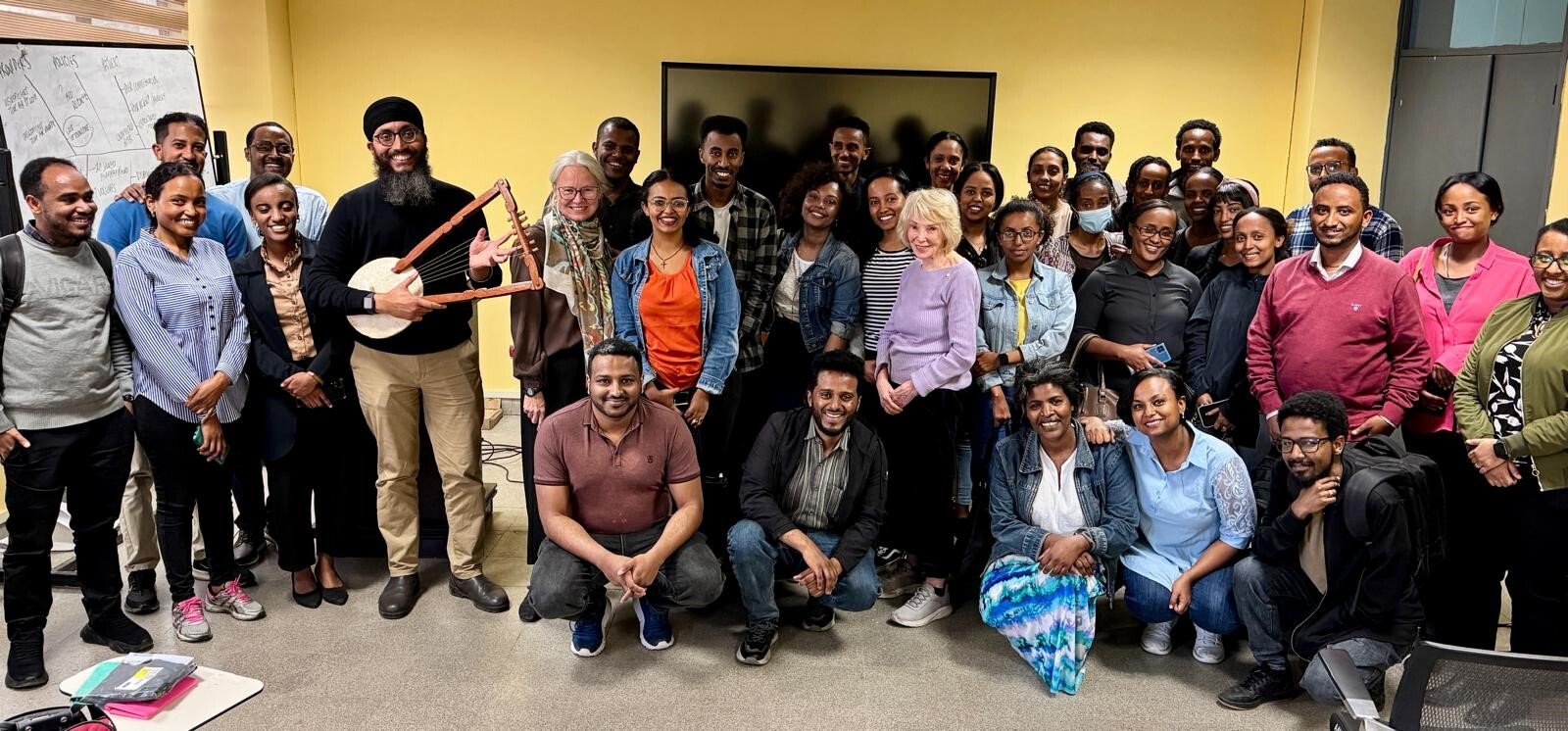Main Second Level Navigation
- Welcome
- Why Toronto?
- History of the Department
- Vision & Strategic Priorities
- Our Leadership
- Our Support Staff
- Location & Contact
- Departmental Committees
- Department of Medicine Prizes & Awards
- Department of Medicine Resident Awards
- Department of Medicine: Self-Study Report (2013 - 2018)
- Department of Medicine: Self-Study Report (2018 - 2023)
- Communication Resources
- News
- Events
Toronto-Addis Ababa partnership expanding the Ethiopian healthcare system

A unique partnership between the University of Toronto (U of T) and Addis Ababa University (AAU) in Ethiopia is addressing a critical shortage of medical specialists in Ethiopia, building local expertise in the country and fostering an exchange of knowledge that benefits physicians and patients alike.
Since its establishment in 2003, the Toronto Addis Ababa Academic Collaboration (TAAAC) has been supporting Ethiopians to identify and implement solutions to some of their nation’s most pressing challenges through education and training programs. By connecting faculty and learners at U of T with their counterparts at AAU, the partnership facilitates training for the specialist professions Ethiopia needs, while building upon U of T’s commitment to global citizenship and international engagement.
For medical learners at AAU, international learning opportunities are a crucial part of their subspecialty education, allowing them to experience different healthcare systems and infrastructure. However, the COVID-19 pandemic created challenges in facilitating these opportunities, leading to a backlog of participants.
“We’ve spent a lot of time in the past year hosting Ethiopian learners as observers in Toronto for short periods of time and trying to pick up the slack because of this pause,” says Marci Rose, Toronto Director for TAAAC. “Our team is grateful to the hospitals and departments in Toronto that were able to take on and support these individuals.”
TAAAC consists of more than 27 partnerships across nine U of T faculties, the majority of which are in the health sciences. In 2024, TAAAC was excited to bring 19 Ethiopian learners across various programs to Toronto, nine of which were observers for internal medicine subspeciality programs (hematology, cardiology and nephrology). These participants are typically fellows who have completed their residency and are now doing subspecialty training in internal medicine, psychiatry, medical imaging, endocrinology and other fields.
A unique aspect of TAAAC is the bidirectional learning it promotes.
“It’s not just physicians from Ethiopia coming here to learn. Our U of T colleagues get a lot out of these experiences as well,” says Marci. “They hear about cases in Addis Ababa that are different from what they might see here, as well as different techniques and approaches.”
Another key component of TAAAC is sending U of T faculty to AAU for month-long teaching experiences. In both cases, TAAAC covers airfare, accommodation and other costs for those travelling. As Ethiopia is a low income country (LIC), this financial support is essential for making the partnership work.
In 2024, 55 U of T faculty in fields like family medicine, emergency medicine and psychiatry traveled to Ethiopia to teach. The TAAAC team is now aiming to strengthen other subspecialties such as nephrology, neurology, cardiology, infectious diseases and palliative care.
“What’s heartwarming is that there are many people who book recurring trips,” says Marci. “We have faculty who’ve gone two, three, even four times over the past number of years.”
Marci has also been told by participants that teaching in Ethiopia is energizing and helps them rediscover their passion for medicine.
“There can be a lot of burnout and many faculty feel like they can’t possibly take a month off to volunteer, but those who do say they feel excited about the work and valued by the Ethiopian students, who are excited to have faculty there providing hands-on clinical experience and supervision.”
TAAAC operates with each position in Toronto having a counterpart at AAU. Marci Rose, the Canadian Director, works closely with Ethiopian Director Dr. Dawit, and similarly, U of T’s Internal Medicine Faculty Lead, Dr. Nazik Hammad, collaborates with her Ethiopian counterpart, Dr. Getahun.

As of 2018, TAAAC has trained more than 250 professionals, with over 90% staying in Ethiopia. These graduates are hired to expand the faculties at AAU and the over 50 new universities that have opened since 2008. In time, each program becomes capable of replicating itself locally, independent of the need for U of T assistance.
“What we’re seeing in Africa today is an epidemiological shift toward non-communicable diseases such as cancer and diabetes, and the impact of emergent infectious diseases such as COVID-19,” says Dr. Hammad. “Infectious diseases remain a major challenge with the added burden of increasing global antimicrobial resistance.
Dr. Hammad refers to this as the “triple threat” of infectious diseases, non-infectious diseases and emerging pandemics, highlighting the need for a larger, well-trained healthcare workforce in sub-Saharan Africa, particularly in internal medicine.
While the curriculum in Ethiopia is developed by AAU faculty, U of T faculty are invited to provide input and expertise in specific areas. Training physicians in their home country ensures they gain skills suited to available resources, avoiding the problem of learning techniques they can’t replicate at home. Local training also significantly decreases the risk of brain drain.
“We have trainees at U of T that ask about travelling to Ethiopia and participating in TAAAC, so it’s a unique opportunity that we’re fortunate to be able to offer,” says Dr. Hammad.
The COVID-19 pandemic also highlighted the importance of developing global healthcare connections when tackling global health problems.
“A lot of global health is relationship-based, whether it be friendship, mentorship or collaborative,” says Marci. “For many of our faculty who have travelled to Ethiopia as part of this partnership, they’ve described it as a transformative experience that has long-lasting effects on the way they view the world and the way they practice.”
“We are hoping to see resumption of in-person teaching and we urge U of T internal medicine faculty to avail themselves to this unique global health opportunity,” says Dr. Hammad.
